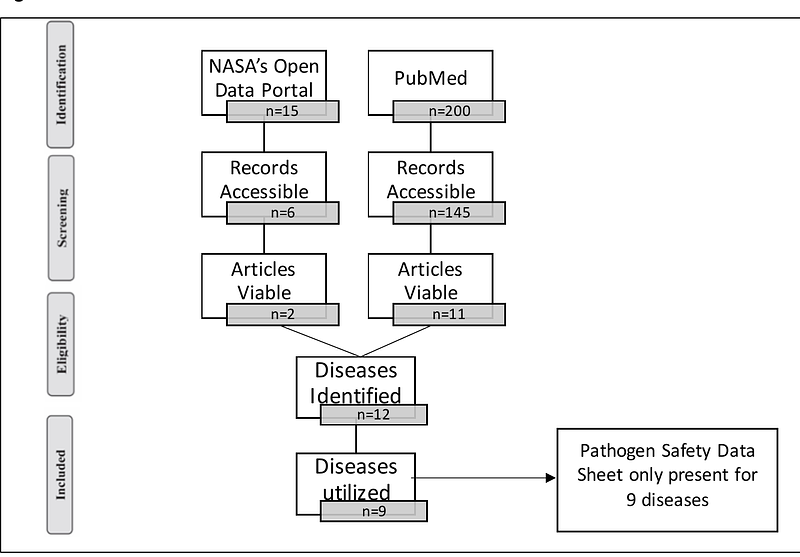COVID-19 in Space: Possible Health Risks and Preparedness Guidelines

COVID-19 in Space: Possible Health Risks and Preparedness Guidelines
Vashishat, I.; Han, E.; Assogba, B. D.
AbstractThe COVID-19 pandemic of 2020 resulted in over 705 million infections and more than 7 million deaths worldwide. The virus primarily spreads through aerosol droplets released during breathing, coughing, or sneezing, leading to symptoms ranging from mild fever and cough to severe outcomes, including death. Given the high risk associated with COVID-19, understanding its behaviour in diverse geographical and environmental conditions is critical. With the expansion of human exploration into space, there is an urgent need to assess the risks posed by COVID-19 in extraterrestrial environments. Space exploration and tourism represent an emerging industry, projected to reach a market value of $1.8 trillion by 2030. With numerous missions planned by organizations such as NASA, SpaceX, and ISRO, and countries like India and China, it is vital to address potential health risks, particularly those posed by airborne infectious diseases like COVID-19, among astronauts and space tourists. This study reviews existing literature on airborne infections in space, identifies key knowledge gaps, and aims to enhance preparedness for potential COVID-19 outbreaks during space missions. By analyzing airborne infectious diseases in space, the study predicts the risks posed by COVID-19 and develops evidence-based guidelines to mitigate its spread. The findings will not only help protect space travelers but also inform future spacecraft design by incorporating enhanced safety measures, ultimately reshaping the future of human space exploration.